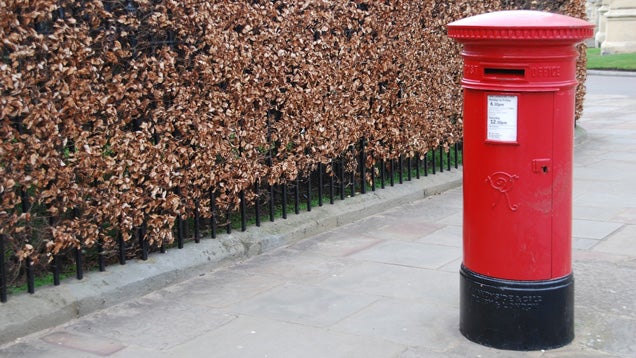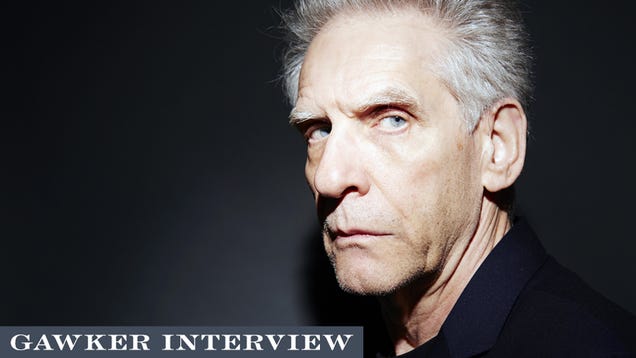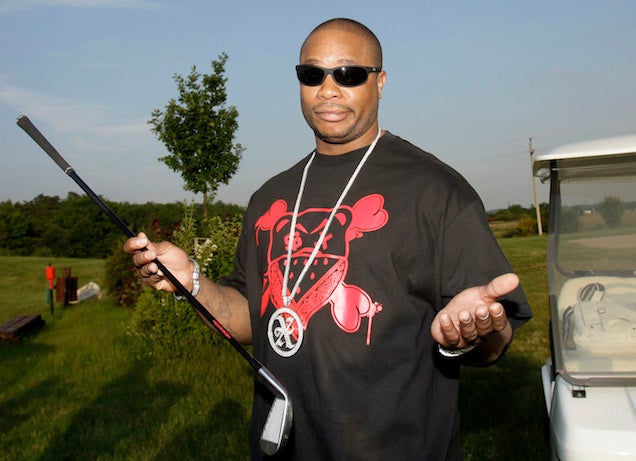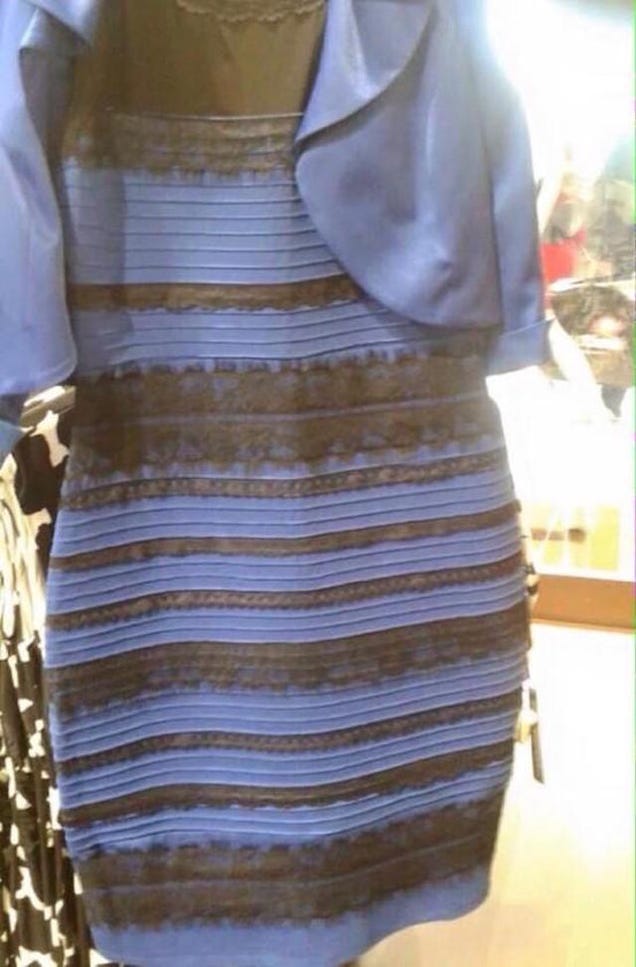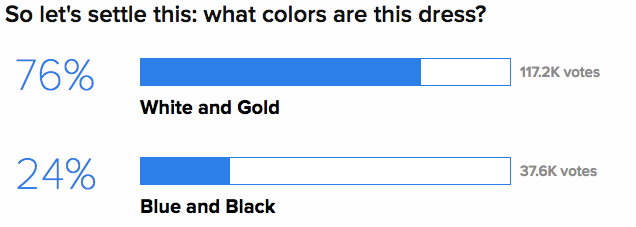
In 1976, when Black History Month was officially acknowledged by the U.S. government, President Gerald Ford gave a (very brief) speech. "In celebrating Black History Month, we can take satisfaction from this recent progress in the realization of the ideals envisioned by our Founding Fathers.," Ford said. "But, even more than this, we can seize the opportunity to honor the too-often neglected accomplishments of black Americans in every area of endeavor throughout our history." Almost 40 years since Ford's remarks, the belief that Black History Month is used as a time to "honor the too-often neglected accomplishments" of blacks that have helped better shape America is only partially true.
What originally began as Negro History Week in 1926, has now become a watered-down, Greatest Hits compilation of talented-tenth blacks. In school curricula across the country, it is not so much the story of black history being taught as much as it is the story of Harriet Tubman, George Washington Carver, Benjamin Banneker, Rosa Parks, Jackie Robinson, and Frederick Douglass. February has also become a time for mega-corporations like McDonald's to get extra black in its consumer branding and for Nike to sell specially patterned sneakers for $200. If you're wondering how we're able to fit all of this, and more, into 28 glorious days, don't—just know that Martin Luther King Jr. marched on Washington for your right to peacefully eat 20 McNuggets while wearing high-priced, polychromatic sneakers.
I am not particularly sure how we arrived at this point. What does Black History Month even represent now? Whom does it serve? Should we just get rid of it? To answer these questions, and others, I enlisted the help of fellow blacks Lauretta Charlton (Vulture), Jenna Wortham (New York Times Magazine), Rembert Browne (Grantland), Hillary Crosley (Jezebel), and Greg Howard (Deadspin). We were determined to figure this out.*
Lauretta Charlton: Recently, a colleague asked me to provide feedback for a project she was working on. It was a month-long marketing activation for a client who wanted to promote diversity with Black History Month content. This particular coworker was white and she didn't feel comfortable with the task she had been given. I don't know if she reached out to me because she wanted the corporate equivalent of a "hood pass", or if she needed me to reaffirm what she already knew: that this half-baked marketing scheme would do little, if anything, to promote diversity or interest in African American history. I told her I thought the whole thing was a bad idea.
Black History Month is a problem, not least because it gives corporate America an excuse to look fake righteous, but because it leaves many of us feeling bitter and wounded. It's like a month long session of triggering. For example, this month, the Times wrote an amazing feature on the Equal Justice Initiative and I basically cried while reading the entire thing (which, by the way, everyone should read.) I prefer this type of Black History Month coverage to the, you know, "Wow, Wasn't Jackie Robinson Such a Swell Negro" variety, but it's painful no matter what. I'm always reminded of being the only black kid in the classroom. When the subject of slavery came up, it was all eyes on me. It was incredibly traumatizing and I felt pain, not pride. No because I was ashamed, but because I wasn't prepared, as a child to process and deal with the magnitude of racism in America. Sometimes, I still feel ill prepared to deal with it. It's so fucked up.
Hillary Crosley: For me, Black History Month is a chance to celebrate my fabulous blackness, which to be fair I do every day, but seriously, I don't see the 28 days as a tool of oppression. But this is also how I view life as a minority in a country that's largely set up against me. I see the traps put together by the powers that be and do my best to avoid them while acknowledging they exist, this is how I survive or else my fury at the inequities will consume me.
These traps include but aren't limited to: fewer good public schools to prepare minorities for higher education, fewer college opportunities (just look at the dwindling number of minorities in the University of California system, where I attended. I was the first class of undergrads to attend without the help of Affirmative Action thanks to Ward Connerly. Jerk.), fewer job opportunities due to lower skills or fewer connections based on my college alma mater or who I or my parents know, lower dollars in my paycheck, and so on.
I am by no means an 'I don't see color' person—that is not a real thing—I do my best to with the fuckshit, do what I can to change it and step right along.
Growing up, I attended an annual black history program in my area, it was a mix of the local high schools, junior colleges, churches and community organizations. It was kind of cheesy and a timely reminder that I still don't know the second verse of "Lift Every Voice" but in hindsight, I'm grateful for the experience. I'm one of those black people who love being black and leap at chances to dissect how we've come to be, who we are and learn all of the different parts of us as a people. I was the kid whose mother dragged her to hear Maya Angelou, Nikki Giovanni and Susan L. Taylor speak, hear Leontyne Price sing and watch Alvin Ailey's company perform. We visited the Marcus black bookstores in Oakland and I spent hours plucking narratives from my aunt's vast library, Bebe Moore Campbell, E. Lynn Harris, Revolutionary Suicide and a bunch of other things I was too young to be reading. These cultural moments are fused with the boisterous black people with gold caps at my family reunions as Frankie Beverly and Maze or Al Green played and a bid whisk game got heated. I love us, all of us, and for me, Black History Month is about celebrating us in all of our forms. I look forward to learning new things about us and roll around in what we create—I mean, there's new Kendrick, new Drake and new Kanye, thank the Black History Gods!
And I can't be too mad about capitalism trying to muscle in on BHM, this is America, though if I see that candle lit McDonald's commercial about Martin Luther King Jr. one more time.
Rembert Browne: You know that terrible campaign that McDonalds used to have (or still may have), 365 Black. That's what I hate, mainly because if there's one thing that could take me from 365 Black to 0 Black (dead), it's a frequent diet of McDonalds.
Calling Black History Month "contentious" is interesting, because is it? Yes, the requisite "do we still need Black History Month" post will always pop up by February 3rd, and yes, a back and forth can (and should) exist until February 5th, but the reality is it's not going anywhere. We have some holidays, some observations, that are net-negatives on society (Columbus Day). So even if you think Black History Month isn't doing enough for Black people, it's hard for me to believe it's making things worse. There are flaws, and perhaps some of the flaws can be fixed, but there's a lot worse that should see itself out before that thing where everyone talks about Black people a little bit more during the shortest month.
Over everything, Black History Month is important for the kids—Black kids, all kids—which is why I'm still convinced it has great purpose. Between my grade school indoctrination of Kwanzaa (a celebration I will always clown despite understanding it's importance) and Black History Month, I learned most of what I know about trailblazing Blacks by the time I was 10. Yes, there are some issues with "Jackie Robinson sure was a swell negro," but with every passing year, it's still good to remind/teach people that there was someone named Jackie Robinson. And that he was, in fact, a negro.
Growing up, Black History month wasn't February, February was Black History Month. And I learned about those that came before me like I learned my multiplication tables. And I plan on grilling my kids the same way, not giving them dinner until they tell me who Benjamin Banneker is. Or correctly telling me the song that Nina Simone wrote for Lorraine Hansberry. Or listing all five singles from the first Nelly album. It just gives you some sorely needed perspective on why you exist, in the nature in which you exist.
It is interesting that it was previously noted that BHM can be a time for triggering, for feeling bitter and wounded, for having those memories of being the only Black kid in class. And I get that. But in Example #13525123598 that not all Black people are the same, my experience is the exact opposite. No more relevant or legitimate, just different. For me, those negative realities are 365 Black with the ever-so-slightest relief felt in February. I joyously talk about Black people all the time, but in February i just do so with the expectation that the ignorant response will be slightly smaller. It's not an issue of being louder in February, it's more everyone else being infinitesimally less reckless. And not because society suddenly has a giant epiphany in February, but more because of the power of numbers that has always come with Black History Month.
I think that's really what Black History Month represents for me, 2015: a 28/29 day period where it's more well known that it's probably not the best idea to come at my sideways. If it was significantly deeper for me, I'd begin to think I wasn't doing what I needed to do in the other eleven months.
Lauretta Charlton: There isn't a universal blackness, of course, but before anyone starts thinking abolishing Black History Month would be a form of erasure, they would do well to consider the fact that having corporate interests (including textbook manufacturers in Texas and California) dictate the type of blackness we teach and learn about in school and mass media is, too, a type of erasure. Teaching about Jackie Robinson is great, but it's the nameless black lives we don't and can't teach about—the swinging bodies hanging from the tree Simone sang about in "Strange Fruit"—that we need to remember, every single damn day. Black History Month, like Kwanza, was created to assuage, to de-radicalize. It has worked. It's problematic. Why not call it, Let's All Pretend Slavery Didn't Happen Month instead? I think it would be more effective that way.
Rembert Browne: Let's All Pretend Slavery Didn't Happen Month is a terrible name for a month. But I do see where you're coming from. And you're right. Or at least approaching right.
It reminds me of this conversation I was recently having, regarding editors and writers (the same could be said for athletes and team owners, entertainers and studio execs, etc). Typically, there's the people producing and there's the people making the decisions about what the product will look like. There's no denying the strides that have been made, with regards to Black folk getting a seat at many a table assigned with producing. The ability to teach Black history in the schools is one of these tables. But what about the people that decide what this black history curriculum will look like?
Maybe even I got brainwashed a bit into thinking Black History Month is only about the "greatest hits." In a twisted world, it behooves everyone to just think about the "shining" examples of Black (inventors, scientists, political leaders, champions of human rights). Because there's something in there that keeps order. A convenient idea of how we got to this place, as an America, all through the lens of this All-American Black First Team, under the auspices of "trailblazers of the past, inspiring the next generation." Yes, that's partly true, but that's not why it's done—to create better blacks. It's because it's much more marketable to roll out the greatest hits.
It's a lot harder to decorate a Wal-Mart with information about the Poll Tax. This, however:

But that's not honest. Again, it's borderline revisionist history, similar to how Columbus Day remains on the calendar every year. The I know he did every single terrible thing ever, BUT HE DISCOVERED AMERICA.
What if Black History Month was Let's Spend A Month Looking Back At All The Terrible Things White People Did Month. That's even harder to throw a corporate sponsor on, but maybe that's the month we need. And if that isn't an option, maybe no month at all should be on the table.
Did I just flip flop? Perhaps. But this isn't about me. And I didn't come here to win. This is about Blacks. And history. And months. And I'd actually like to get to the bottom of this, instead of going back and forth until it's March, at which point we're not allowed to talk about Black History Month until the following February.
Jenna Wortham: I relate to everyone on all of this. I can remember the complicated mixture of excitement and mortification each time Black History Month rolled around, and the sound of a dozen or so elementary school kids swiveling around to locate and laser in on the black kids in classroom when we had presentations in February and I never liked that much. I loved learned about Supernegroes like Jackie Robinson and George Washington Carver but I hated the feeling of being singled out. Over time, that feeling faded some, and since I celebrate my blackness on a daily—secondly—basis, February has just been a month where I do it a little more loudly, a little more aggressively, a little more unapologetically. Just the other day, I bragged about a triumphant new follower named Nat Turnup and it felt great. All the corporate sponsorship stuff sails right over my head because I don't have a TV slash cable anymore, but now that you all mention it, I have been seeing a lot of AT&T and Verizon ads featuring black people before my stories on Hulu, and I guess that's why.
But Black History Month will never not be bittersweet. It'll never not be undermined by brands and companies who want to bandwagon and have new marketing strategies around it and never not be tinged with the underbite of respectability politics—as in, look at all these shining examples of black folk that are the best your kind has to offer—and the way that detracts from the larger goal and struggle to understand and deal with the systemic structure of white supremacy and oppression that surrounds everything we do, and never talk about in February. I wouldn't want a Lets All Pretend Slavery Didn't Happen Month, but I might be able to get behind Lets Have a Real-Talk About Black Oppression Month. Because that's honestly what we need. Maybe that can be March.
This year, though, I've been trying an experiment. I recently visited MoCADA (the Museum of Contemporary African Diasporan Arts) for a writing seminar and I noticed they had all these signs up for what they're calling "Black Future Month." That blew me away. They're using the lens of Afrofuturism to dive into the otherworldly Utopias where we didn't come to this country as slaves, to the imagining of a collective cultural history and present free from all the heavy burdens we carry. Setting that down, and letting myself be inspired to make and create has been indescribably liberating. And fun. So I've been into BFM and Black Present Month, and shifting my practice of examining the culture and history of black people from the past towards the future. To thinking about the potential that lay ahead. In some ways, perhaps, its a little naive and short-sighted—how can we move forward when there's so much in the infrastructure keeping us back—but its put a little spring in my step. I got very into Titus Kaphar, Terrell Davis, Yung Jake and Jordannah Elizabeths, Juliana Hutxable, Tink, Morgan Parker, the works of Patrizia Maimouna Guerresi, Amaryllis DeJesus Moleski—and there are so many more of us, its incredible. And then I've been getting back into Octavia Butler, Missy, Sun Ra, and all the visionaries of our past who were imagining a way ahead.
Greg Howard: When I think back on Black History Month, I don't really have too many fond or romantic memories about it from my youth. For me, there was always dread attributed to Black History Month because every year, my elementary school put on a Black History Month assembly, and every year, I had to stand in front of the entire school and read some passage from someone's (auto)biography. I hated reading or speaking in public because all the attention made me uncomfortable, and more importantly, I had a gnarly-ass lisp that I couldn't personally hear, but everyone told me about.
But more importantly, I didn't really get a whole lot out of Black History Month. Most of the black history I've acquired came from other sources, and at all times of the year: my parents, other family members, books, the occasional social studies or history class, television, music. I assume I'm lucky, but in any case, I had very little use for a designated month where teachers could tell me about how Martin Luther King saved the world, or how George Washington Carver made peanut butter.
And so over time, it got me asking a question that I'm still asking now. What and whom is Black History Month even for?
I mean, yes, Black History Month is in large part for the brands to maybe dish out cool sales, but more likely it's for the brands to feign empathy for black folks in hopes that black folks who wouldn't otherwise decide to buy whatever it is the brand is selling, turning a larger profit for the brand. I don't really know if that's worth getting upset with, since brands don't have souls and exist only to make money, and exploit every single holiday and weekend and season and race, etc. to do so. Whatever.
I think, though, that Black History Month is, or at least should be, about education, since black history has been separated from American history. But I don't know who is supposed to be getting educated every February. Is it for white (or more broadly, non-black) people? If so, I don't think a month-long, Disneyfied crash course on slavery is really helping the situation. My best friend, who's been around my family as long as I can remember, is white. We're brothers at this point, and he loves and empathizes with me, even cooler, other black people who aren't me. He gets it. But he doesn't really know shit about black history. He doesn't know where Selma is or why it matters. He can't rattle off Nelly's five singles. If this is what Black History Month is for, it's a failure.
But maybe, hopefully, Black History Month is an education and celebration of black history that has for centuries been ripped from and denied to black people. I can get behind this! If that's the case, then Black History Month is a cool little start, but nothing more. (It used to be only a week long!) Black history isn't tangential to American history, or extraneous. It is American history. The Supernegroes and cool parts should be taught, just as the ugly, heartbreaking, and worst, nigh-unbelievable parts are. That's not a 28-day-a-year endeavor. And so I think Black History Month is a necessary step in the direction of teaching black history as American history. But as long as black history is ghettoized to just one month, it's a lot harder for me to get behind.
Jason Parham: I've been trying to recall traumatizing Black History Month incidents from my childhood, but none come to mind. Or maybe they happened and I just unconsciously forced them from my memory (the effects of childhood trauma can be tricky like that). I grew up in a loving, black community in Los Angeles and, for the first twelve years of my life, went to a school that was mostly black and Mexican. So black history—or speaking more broadly, the histories of othered peoples—was default. It was all we knew, even if we didn't always encounter it in our textbooks or only got extra doses of it during February while at school. In the morning, during recess, and after school we communicated our histories—both familial and shared—via kickball arguments, lunch-time chatter, and as we chilled across the front-lawn waiting for our parents to pick us up (at least until we were old enough to walk home by ourselves). Our history was our currency. There was a daily exchange.
As I've gotten older, my understanding of Black History Month—what it represents to/for black folk and non-black folk—has become more complicated. Rem said something that I've been parsing over the last few days, this idea of being more aware of "the nature in which you exist." That's important. For me, at least. So, I think, Greg and Jenna are onto something here: it's about education, and the ways in which we educate ourselves about our history. It's about constantly digging deeper, and expanding our view; it's about reminding ourselves of our possibility and potential. Many have come before. Many are here now. Many more will follow.
As for what should be done about Black History Month, I don't exactly know. I wouldn't call Black History Month a problem, though I do find parts of it problematic—the history of blacks in America is full or triumph, but it's also a story of terror and trauma caused by systemic oppression. The latter is rarely studied in elementary and middle school classrooms, and I suppose it would be too emotionally crippling to teach to kids. (Or would it?) I'm proudly black every day of the year, so doing away with BHM wouldn't lessen my pride. Maybe, honestly, it should be more about de-centering whiteness from the story—no matter if we're telling Jackie Robison's greatest hits (the preferred narrative) or Richard Bruce Nugent's b-sides (the unlikely narrative).
Hillary Crosley: I was raised to know the good and the bad in American and world history. For example, I remember my eighth grade Jewish middle school teacher forcing our class to watch the gruesome Mein Kampf documentary, with Nazis, piles of dead bodies, and Jewish workers wrenching god caps out of corpses mouthes. It was horrible, it gave me nightmares. After the first day, I came home and told my mom, 'Please write me an excuse to get outta there!' She declined, and I guess it was because, you know, you gotta know the real, kid. It's not pretty but it happened and you have to know what came before to inform what's happening now—or she could've just been a tired mom who thought I was doing too much, who knows. Either way, I feel the same way about black history in America and life in general, the truth is simultaneously the easiest and most difficult route, from peonage to lynching to Supernegroes. It's why Americans are always trying to re-write stories like Thomas Jefferson and Sally Hemmings or throw a new shine on Gone With the Wind or take "nigger" out of The Adventures of Huckleberry Finn.
It's too late, America's already racist, forged from it, so perhaps Black History Month can serve as more than a greatest hits but rather a platform to have that overdue discussion about why America even needs a "nigger" or boogie man to play against as this thread suggested. And then we can move forward as a country. Although my sarcastic mind is already saying, 'But, but, but human interaction is often built upon separation, so undoing
Jason Parham: So should we end Black History Month? My vote is no.
Jenna Wortham: No.
Greg Howard: Nah. It's still doing important work right now. Maybe one day we won't need it, but we aren't close yet.
Hillary Crosley: I don't know what the solution is but I am firmly against abolishing Black History Month because that, to me, would serve as further erasure of our story in this country. And if nothing else, you gotta slap people with the real at least once a year because they might not hear it otherwise. Also, like most things, teaching alternative and enlightening information begins at home, relying on the US school system to teach us about ourselves will always be a sure path to failure.
Jenna Wortham: Yes to everything Hillary said, and I want to bold this: "but I am firmly against abolishing Black History Month because that, to me, would serve as further erasure of our story in this country," because it's not even just the erasure, but the further marginalization of the importance of acknowledging how integral black history and black culture is to American history and black culture. Taking away Black History Month makes it even more okay to not recognize the work that was done to build and shape this country, and is still done. We're already living in a world where the lack of recognition of black people in modern institutions, like film (aka the Oscars), which becomes a throwaway punchline at a huge awards event that is really the performance of the privilege of committing the crime of non-inclusion and getting away with it! I don't want to give anyone or any institution any additional reason to ignore us in mainstream culture, or focus on the pain of white people—aka Chris Pines tears—instead of focusing on actual black pain—David Oyelowo's tears. That last point came up in the latest 2BrownGirls podcast, and it is an incredible point and everyone should listen to it. So while Black History Month is far from perfect, it's hard to ignore. And maybe that's as important as the performance of the month itself?
Rembert Browne: Nah. So here's the thing: maybe Black History Month needs a yearly theme. You know how affinity conferences—ones surrounding some common group, profession, ideology, whatever—often have a theme for that year's event. Maybe Black History Month needs that. It's clear Black History has been the theme of Black History Month for a while now. But maybe there should be something a bit more specific—and not just, "Black Scientists" as a theme.
And in no way am I suggesting some council of elite blacks—the CBC—decide what this theme is. I think the theme can be different, in every setting: every school, every workplace, every household, every whatever. I'd love a school, a neighborhood, a community center, a city to focus on the black history of that school, that neighborhood, that community, that city, instead of always going default-Benjamin Banneker. And that's just one example of giving the year a theme. It could go in so many different directions.
Lauretta Charlton: No, let's not get rid of it, but I can't stress enough how important it is for us to continue to have these conversations. What's disheartening to me is when folks talk about being raised to love our blackness and identity, but we speak of it as a personal endeavor, one that is removed from larger conversations related to American culture and how that culture continues to marginalize, edit and devalue our history. There is no one black experience, sure, but if you're not black, that doesn't matter. A racist sees a black face and thinks the same thing: Nigger. In a way I feel like celebrating Black History Month means being complicit in an agenda cooked up by politicians who would rather talk about Jackie Robinson and August Wilson (both incredible, obviously!) than the ways in which our penal system can be consider an extension of the peculiar institution that is slavery.
I mean, lift every voice and sing, yes, loudly, but, let's call a spade a spade, Black History Month is definitely problematic so long as we continue to treat the lives of black men and women in this country as lesser.
Rembert Browne: I still think there's value in it existing. But just like anything that becomes a part of the mainstream, you take it for granted, it's taken less seriously, and it's very easy to approach it lazily. My only worry, though—one that just arose as I typed that last paragraph, is that I'm attempting to turn Black History Month, with this idea of themes, into Kwanzaa.
Maybe we need to funnel all of our energy in to Black History Month and get rid of Kwanzaa. I don't even know if I believe that, but it's always been hard to think about one without the other, because they both are very much about us Blacks and both long overdue for a rebrand, or at least a reconceptualization.
[Illustration by Jim Cooke]
*We did not completely figure this out. But, you know, happy Black History Month!









